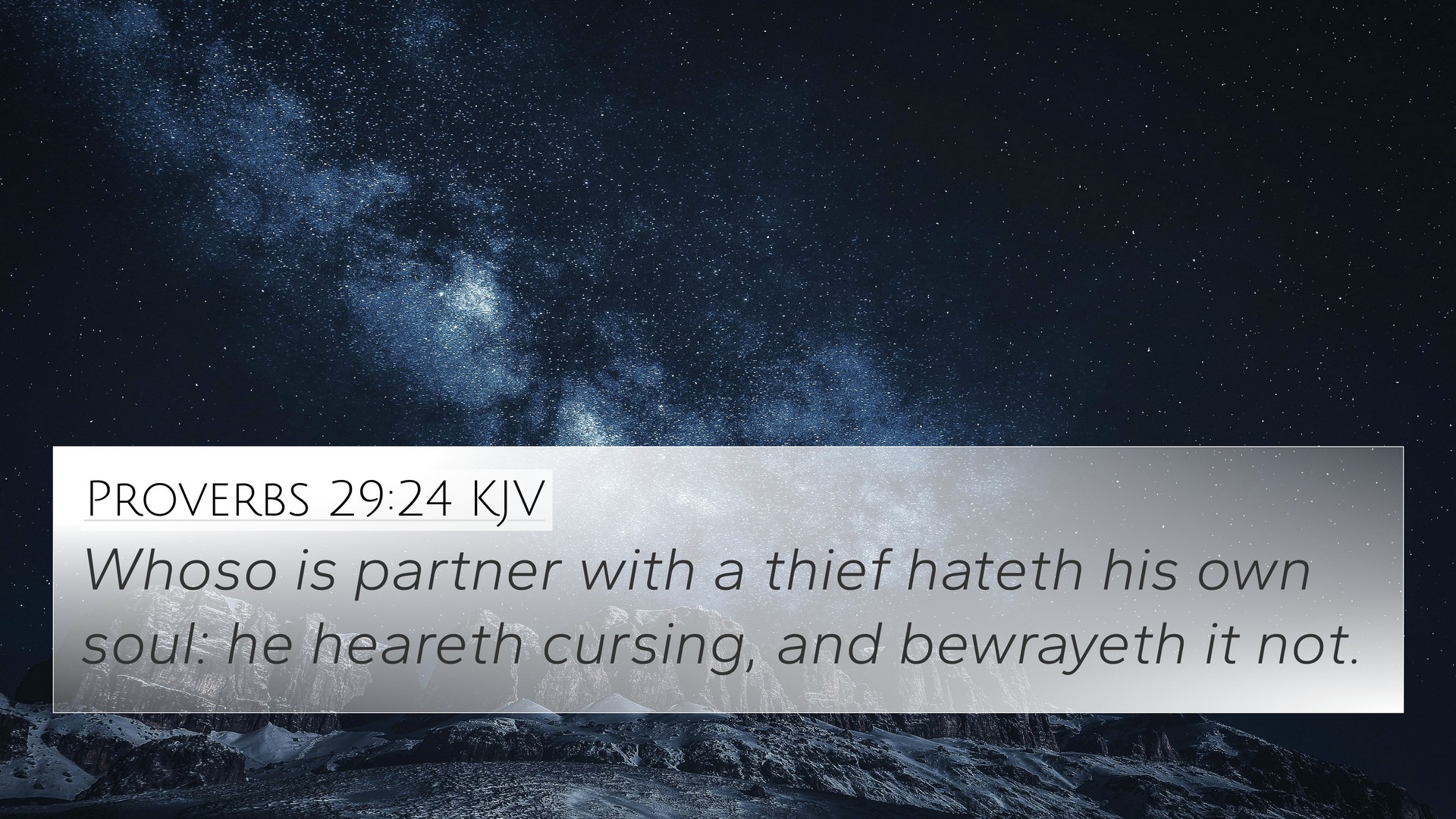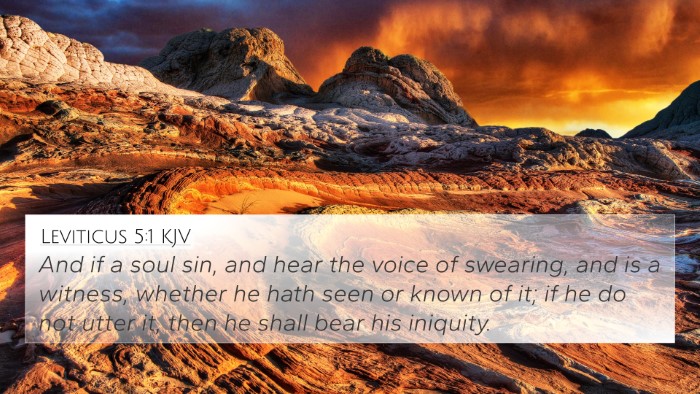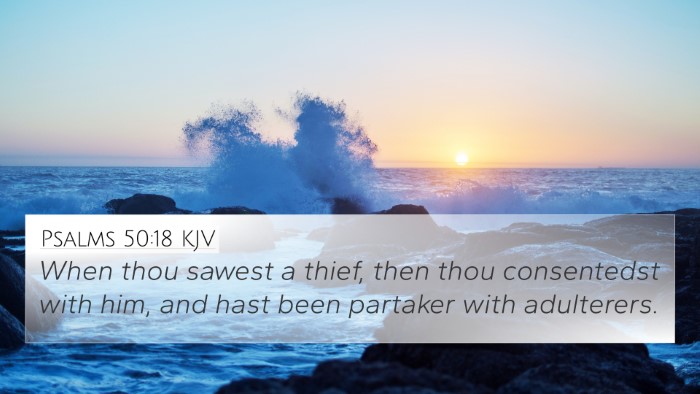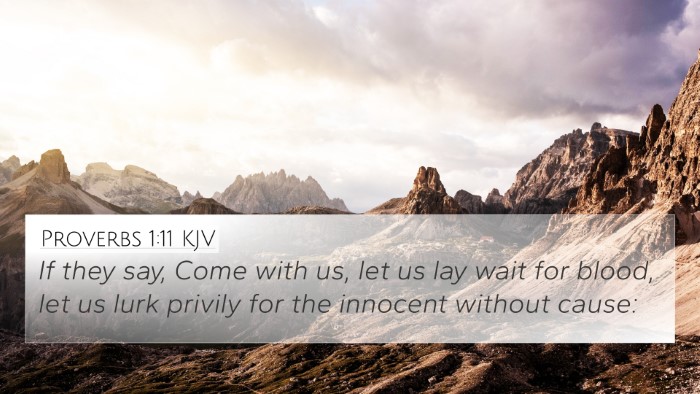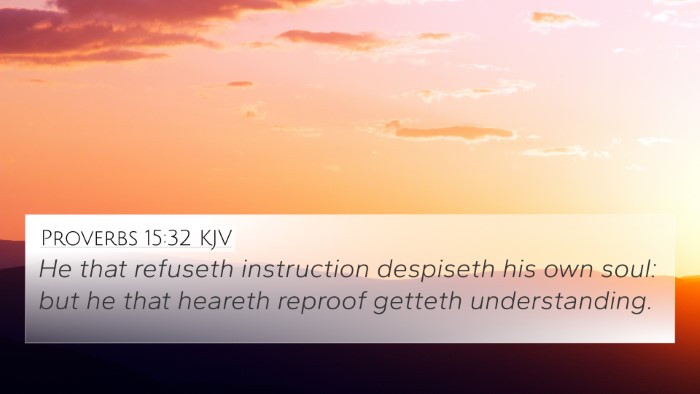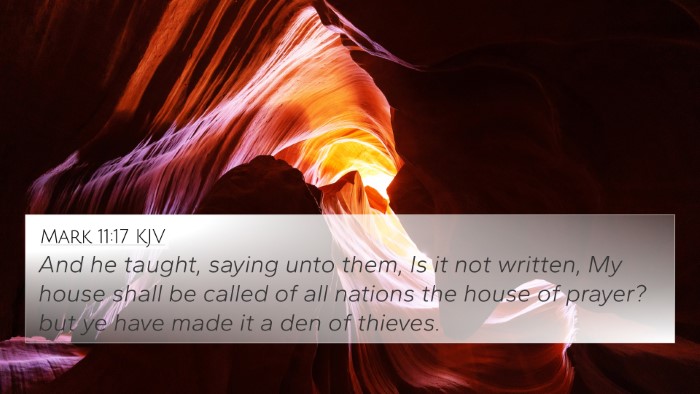Understanding Proverbs 29:24
Proverbs 29:24 states: "The partner of a thief hates his own life; he hears the curse, but discloses nothing." This verse highlights the moral implications of associating with wrongdoing and the internal conflict that arises from such associations.
Insights from Commentaries
-
Matthew Henry's Commentary:
Henry emphasizes the contempt one shows for their own life when they choose to partner with a thief. This partnership implies a shared guilt, and there’s a deep moral and spiritual danger in remaining silent about the actions of wrongdoers.
-
Albert Barnes' Notes:
Barnes elaborates on the nature of silence in the face of wrongdoing. He indicates that the partner of a thief bears a heavy burden of guilt and shame. This silence signifies complicity, and the fear of retribution from the thief often keeps one from speaking out.
-
Adam Clarke's Commentary:
Clarke points out that the verse warns against the moral decay that comes from associating with dishonest individuals. He illustrates that such a partnership leads to a loss of integrity and the eventual destruction of one’s own character.
Thematic Connections
This verse can be connected to various other scriptures that discuss the themes of dishonesty, guilt, and the consequences of our associations. Below are notable Bible verse cross-references that relate to Proverbs 29:24:
- Exodus 20:15: "You shall not steal." - This commandment underlies the morality behind the behavior described in Proverbs 29:24.
- Proverbs 1:10: "My son, if sinners entice you, do not consent." - A warning about the danger of association with those who commit wrong.
- Proverbs 13:20: "Whoever walks with the wise becomes wise, but the companion of fools will suffer harm." - Highlights the importance of choosing one’s companions wisely.
- 1 Corinthians 15:33: "Do not be deceived: 'Bad company corrupts good morals.'" - Reinforces the message about the dangers of poor associations.
- James 4:17: "So whoever knows the right thing to do and fails to do it, for him it is sin." - Emphasizes the moral obligation to act against wrongdoing.
- Galatians 6:7: "Do not be deceived: God is not mocked, for whatever one sows, that will he also reap." - Illustrates the consequences of sinful actions.
- Psalm 1:1: "Blessed is the man who walks not in the counsel of the wicked." - Contrasts the behaviors of the righteous vs. the wicked.
- Ephesians 5:11: "Take no part in the unfruitful works of darkness, but instead expose them." - Calls for active resistance against wrongdoing.
- Proverbs 28:24: "Whoever robs his father or his mother and says, 'That is no transgression,' is a companion to a man who destroys." - Expands the concept of theft and the moral implications of justification.
- Ecclesiastes 12:14: "For God will bring every deed into judgment, with every secret thing, whether good or evil." - Reminds us that all actions, including silence in the face of wrong, have consequences.
Conclusion
The message of Proverbs 29:24 serves as a profound reminder of the consequences of our associations and moral choices. By understanding the gravity of these connections, believers can diligently avoid partnerships that compromise their integrity. This exploration into the verse, supplemented by related scriptures, illustrates the broader Biblical theme of integrity, accountability, and the moral fabric that should govern our relationships and actions.
Tools for Further Study
- Bible Concordance: A helpful tool for finding specific terms and their locations throughout the Bible.
- Bible Cross-Reference Guide: Guides that provide lists of verses that relate to each other, making thematic studies easier.
- Cross-Referencing Bible Study: Methods for studying verses within context to uncover deeper meanings and connections.
- Comprehensive Bible Cross-Reference Materials: Texts and resources designed to assist in identifying patterns and connections in scripture.
Additional Resources
For those looking for more detailed cross-reference materials or guidance on how to find cross-references in the Bible, exploring specific Bible software, apps, or study guides can greatly enhance one's understanding of inter-Biblical dialogue and provide resources on thematic Bible verse connections.
